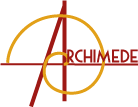Abstract
Title: The child who grasps his willy briskly. Infantile gestures and the detection of lithiasis in the Hippocratic authors
Rubbing one’s penis: the gesture, depicted only in Greek Dionysian context, does make sense in relation to a small child only in the case of urolithiasis, (vesical) bladder urinal stones. Hippocratic authors of the 5th century BCE, who observed and recorded all the symptoms and reactions of their patients, communicated with infants in gestational language in order to recognize the disease and establish its prognosis, the origin, the symptoms, pathology and name of the disease. Even in the absence of any systematic pediatric treatise in Antiquity, the Hippocratic authors considered urolithiasis in children - a disease that has so far been little discussed by our specialists - as one of the gravest infantile diseases which tended to favour boys and often proved fatal. As often the stone could not be extracted from the bladder, searching for lithiasis stones during excavations, in the pelvis area of the deceased infants, complements our knowledge on the diseases of babies and children. If we consider that current medical research shows that urinary pathologies and the formation of stones can already affect the fetus in the womb, for hormonal reasons, we can wonder why the Hippocratic authors, who attributed the disease to breast feeding, did not correlate the milk to menstruation which he considers a “sibling” nourishment of the fetus. Archaeological research must begin from pot burials, perinatal burials, and young children; it will take many chapters to complement the history of breast-feeding. While the analysis of the theory of urinal-stone formation was an issue in ancient thought, the history of childhood shows that today children still experience the same symptoms and that treatment of the disease remains difficult.
Keywords: Urinal stones, lithiasis, urine, vesicoureteric reflux, phallus, penis, baby, milk, breast feeding, pot burial, infancy, gesture, gender, funerary rites, Hippocrates, ancient medicine, infant medicine, urology.




